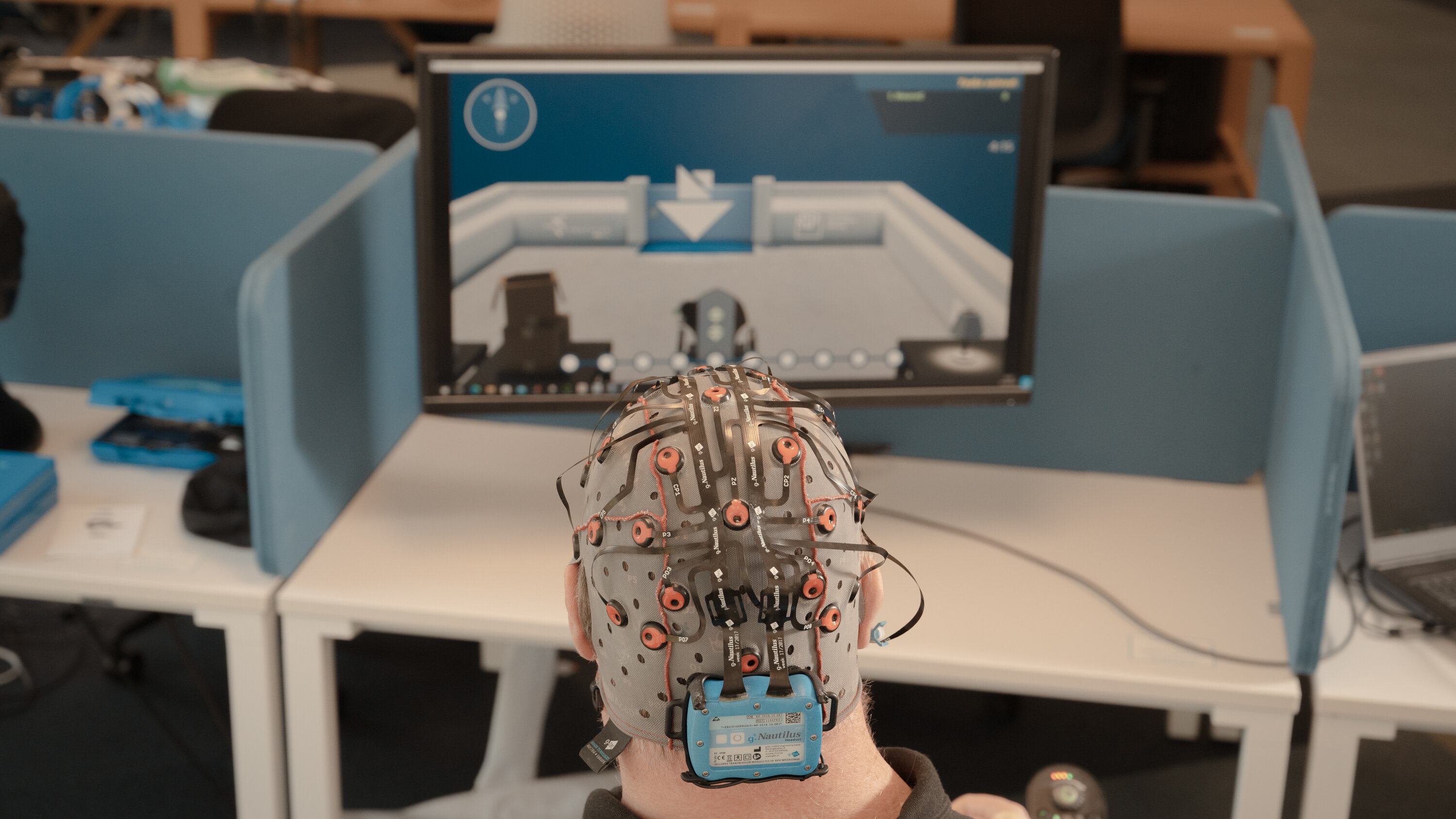Home / Technology / Paralyzed Athlete Battles for Victory in Cutting-Edge Cybathlon
Paralyzed Athlete Battles for Victory in Cutting-Edge Cybathlon
12 Nov
Summary
- Paralyzed man competes in international Cybathlon competition
- Brain-computer interface technology gives him control over virtual tasks
- Implant surgery offers potential for greater control, but carries risks

In November 2024, Owen Collumb, a 54-year-old man who has been paralyzed since 1993, is grappling with a difficult decision. Collumb has been a regular participant in the Cybathlon, an international competition that challenges people with disabilities to complete virtual tasks using cutting-edge assistive technologies.
Collumb, who can only move his biceps, has been using a brain-computer interface to control virtual movements, such as pushing a key into a door handle or filling a cup with water. However, he has struggled to keep up with rivals who have undergone brain implant surgery, which provides more precise control over virtual tasks.
After finishing fourth in the 2024 Cybathlon, Collumb is now considering traveling to Thailand to get a brain implant himself, despite the risks. "We weren't in the same league as the Pittsburgh people," he says. "They're playing chess and we're playing checkers." Collumb is determined to win the Cybathlon, but must weigh the potential benefits of the implant against the significant costs and health risks.
Advertisement
The Cybathlon, which is held every four years, is a unique competition that showcases the latest advancements in assistive technologies. Participants, known as "pilots," use a variety of devices, from prosthetic limbs to brain-computer interfaces, to complete everyday tasks in a virtual environment. The competition aims to encourage the development of technologies that can improve the independence and quality of life for people with disabilities.
As the integration of organic and robotic life becomes more sophisticated, the Cybathlon and its participants are at the forefront of exploring the ethical and practical implications of these technologies. For Collumb and others like him, the competition represents a chance to push the boundaries of what is possible and to reclaim their sense of agency and independence.




